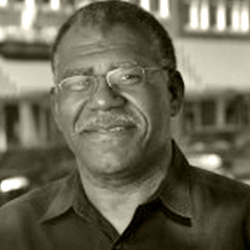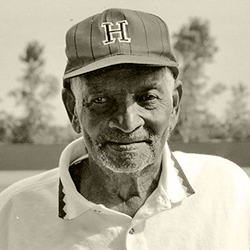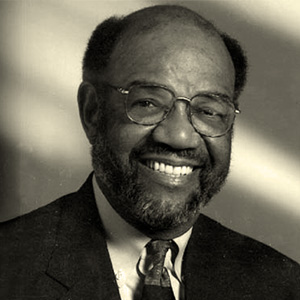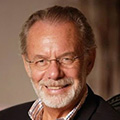For nearly as long as Oklahoma has been a state, it’s been home to some of the most competitive and successful athletes and sports programs in the country.
And it’s no wonder. With its legacy of championships across multiple athletic disciplines, and the renown many Oklahoma sports teams — especially college football — carry throughout the world, “Oklahoma” and “sports” are practically synonyms.
But our state’s longstanding history of victory, sportsmanship, and legendary athletes isn’t because there is something magical in our soil.
While many of Oklahoma’s greatest athletes have some spark of talent at an early age, the roots of their success are the end result of learning tough lessons, purposing themselves to be better people and athletes, and the trait that nearly every influential Oklahoman shares: good, old-fashioned hard work.
In this article, we would like to introduce you to just a few of Oklahoma’s most influential athletes from an array of the country’s most popular sports and examine together what we can learn from their lives and professional careers.
What helped them succeed? What tough challenges did they face? And what lessons can aspiring athletes glean from their legacies of victory?
Let’s dive in and discover these answers from some of Oklahoma’s most accomplished and influential athletes.

Football: Reuben Gant
Reuben Charles Gant was born on April 12, 1952, in Tulsa, Oklahoma. Reuben was a standout athlete from an early age, often having to show his birth certificate to prove he was old enough to play baseball.
He excelled in football, basketball, and track at Tulsa’s Booker T. Washington High School, and during his time there, the football team never lost to another Oklahoma team, and won the state championship three years in a row.
This period of Gant’s life was full of promise, success, and hope — but it wasn’t without immense hardship.
Before the age of 18, Gant suffered the devastating losses of his mother, his stepfather, and his oldest brother. These losses coming at such a young age were an incredibly difficult burden to bear for anyone, let alone a teenager.
It was these tragedies and the desire to stay close to family that led Gant to stay close to home — to his brothers and sisters — so they could see him play and so that he could draw closer to the love and support of his family.
And though he was recruited and sought after by many colleges, Gant ultimately chose Oklahoma State University, allowing him to be nearer to his family.
Following his time in college with many victories and successes both on and off the field, the NFL saw him as a promising up-and-comer. His successful three-year career with the Oklahoma State University Cowboys led to a 1st round draft choice, 18th overall in the 1974 NFL draft, by the Buffalo Bills, from which retired in 1980.
After his time in the NFL, Gant used his Oklahoma State University alumni network and went into the cable television business working with Southern Satellite Systems and then United Video for 13 years, achieving the title of Vice President of Sales before leaving for a Detroit, Michigan regional sports network.
Following his tenure in television, sales, broadcasting, and marketing, Gant eventually returned to Tulsa where he began his work with the Greenwood District — the site of the horrific 1921 Tulsa Race Massacre wherein black people were slaughtered by angry white mobs.
Serving as the President of the Greenwood Chamber of Commerce for many years, Gant is now the Executive Director of the John Hope Franklin Center for Reconciliation. The Center focuses on education and community dialog — among many other initiatives — to create lasting healing and reconciliation in the aftermath of this tragedy.
Though Gant’s career in football was a successful career in itself, it wasn’t without significant discipline and sacrifice — all while overcoming the pain of the devastating loss of his family members that he endured as a young man.
After his professional sports career concluded, and following his time in the private sector of business, Gant sought to use his influence and fame after his NFL career in order to help elevate his community. Similar to his own life, Gant now focuses on helping the greater Greenwood community overcome its pain and strive toward a stronger future.
Gant’s life and continued efforts underscore the lessons he considers vital for young people to learn as they grow and form their own path through life and on the field:
“...It’s okay to agree to disagree. And as long as you live by that, life should be pretty well for most of us. We’re not going to always find agreement with everybody. But that’s okay, ’cause the greatest gift we’re given is the gift of choice. And that’s what it boils down to: You have a choice; exercise it — to a point or in a way that’s not only going to benefit you but it’s going to benefit your community, it’s going to benefit your friends, your family, make a better world.”
— Reuben Gant
Chapter 15

Baseball: Porter Reed
Porter “Gut” Reed was born in 1914 in Windom, Texas whose family, soon after, moved to Muskogee, Oklahoma when Reed was 5 years old.
The son of sharecroppers who toiled long hours in conditions nearly identical to slavery, Reed faced discrimination and injustice from an early age. Baseball, however, was an escape. Playing with his brothers from as early as he could remember, and watching the Kansas City Monarchs play just yards from his house, the game freed his mind and was the joy of his and his brothers’ childhoods.
As Porter grew, he continued his athletics throughout high school in both baseball and football. His parents, all the while, toiled to ensure a better life for their children. His father, John, who worked hard to save enough money to afford higher education, became a barber and opened his own barber shop on 2nd Street in Muskogee.
Later in life, at around 14 or 15 years of age, a chance opportunity opened up for Reed. It was a beautiful June night and the Monarchs were playing near his home. The citizens and players alike helped themselves to plenty of barbeque, whiskey, and friendly conversation — a little too much, in fact, as some of the players became too drunk to play.
With too few men to field the diamond, the Monarchs looked to the crowd and asked if young Porter wanted to play. At first, he said no. But his father, a bit too sternly perhaps (with a belt to Porter’s backside), pushed Porter to play.
Tears still fresh in his eyes from his father’s belt, Porter took to center field. And on the very first play, the ball was hit his way. Making the catch look effortless, Porter’s defense won them the game. The fans in the crowd showered Porter with more than $18.00 worth of dimes, nickels, and dollars — a lot of money back in the early 1900s — and it was then that Porter’s heart was set. He never looked back and continued to play in the Negro League from that day.
Entering adulthood, Reed joined the Black Barons in 1932 and quickly became one of the best pitchers in the league. Reed played alongside other greats like Satchel Paige and Jackie Robinson.
During his career, Reed faced discrimination and racism both on and off the field. Despite this, he persevered and continued to play with skill, determination, and with guiding principles he always passed on to younger players:
“... sharpen your mind and stay in condition. Stay in condition. That’s the same way about football, them guys in good condition, they don’t get hurt. You’re loafing when you get hurt, you get out there loafing and you’re not doing your job. And you’re sittin’ on that bench and that guy pitchin’ that ball, if his curve ball is working you lay off of it… They really expect you to hit your pitch and do your job.”
— Porter Reed
Chapter 17
In 1943, Reed was drafted into the military and served in World War II. After the war, he returned to baseball, playing until his retirement in 1953.
Following his retirement, Reed returned to Oklahoma, where he became a successful businessman and influential member of the Tulsa community. He passed away in 2019 at the age of 95, leaving behind a legacy as a talented athlete and a trailblazer for African American baseball players.

Basketball: Julius Pegues
Julius Pegues was born in Tulsa, Oklahoma on May 5th, 1935. The son of two hard-working parents, Allen Pegues and Patella Pegues, Julius was one of 8 children.
Always supported by his mother and father to achieve academically, Julius worked hard in school. He was fortunate to have supportive teachers all throughout his time in elementary school at Dunbar Elementary all the way through high school at Booker T. Washington. During his academic career, Julius was frequently at the top of his classes — which helped him secure and maintain his spot on his schools’ basketball teams.
This excellence in academics and sports, however, wasn’t without its tribulations. Following his successful high school career, and though he clearly demonstrated superior athletic ability, the University of Oklahoma, Oklahoma State, nor the University of Tulsa would accept him as they didn’t allow black players on their basketball teams.
Despite this discrimination, Julius went on to The University of Pittsburgh, becoming the first black player in school history. Julius quickly transitioned from a walk-on to a scholarship player after averaging 20 points per game in his first month. He finished as one of only 34 players in the program's history to score 1,000 career points.
With this undeniable success in college basketball, the NBA's St. Louis Hawks picked Pegues in the fourth round of the 1958 draft, but he had to serve in the military as he was in the Air Force ROTC at Pittsburgh.
Studying Meteorology at St. Louis University, he served as a weatherman within the Air Force. This experience served him well later in life during his time as an advisor for the Federal Aviation Administration as a designated engineering representative, helping the FAA ensure the quality of aircraft and other engineered aviation components.
As a lifelong activist — especially concerning education, public health, and civil rights — Pegues helped desegregate the Tulsa Public School system. His lifetime of activism and service cannot be overstated. Pegues served on the boards of the Tulsa NAACP, Tulsa Urban League, Tulsa Comprehensive Health Services, Tulsa Housing Authority, and Tulsa Board of Education’s Humans Relations Committee, the City of Tulsa Economic Development Commission, and many others.
This body of work ultimately culminated in the founding of the Greenwood Rising Black Wall Street History Center, which shares the story of Black Wall Street, the Tulsa Race Massacre, and how Greenwood is again rising and inspiring a new generation of Americans to pursue unity and reconciliation in the face of division.
Julius Pegues died on March 29th, 2022. Leaving an indelible legacy in the hearts and minds of Tulsans, aspiring athletes, and students, Julius shares what he considers to be one of the most important lessons for the next generation:
“To treat every individual like you want to be treated. That's the most important thing, is to see a person for what they are, okay? And don't prejudge people. Get to know someone, get to know them first; and don't just lump everyone into one category. Find out about a person's character and what that person is all about before you categorize them. And just have respect for your fellow man…
For everyone. Everyone: respect your fellow man. If we had more respect for one another, we wouldn't have half the problems that we have. But people tend to do things and then try to cover up for it, try to justify. Although they know it's wrong, they try to justify what they've done, which makes it worse instead of facing up to what they've done and developing respect for everybody.”
— Julius Pegues
Chapter 11
Lessons to Learn from Oklahoma’s Famous Athletes
From the 3 athletes we met today, we learned lessons that anyone — students, aspiring athletes, or folks from any walk of life — can apply to their life:
Recognize the power of your choices.
Reuben Gant’s life and wise words reminded us that it’s the little choices we make — day in and day out — the show the world who we really are. And our choices are the sparks that ignite meaningful, positive change in our schools, places of worship, workplaces, and communities.
Keep your mind sharp and body in shape.
As we learned from Porter Reed, keeping our mind and body sharp doesn’t just lead to athletic success, but success across every area of our lives. Staying fit, eating right, and keeping our mind active leads to a long life just like Porter’s.
Respect your fellow man.
Finally, Julius Pegues’ life and legacy showed us the power of a life lived in respect of one’s fellow man — even if that respect isn’t always reciprocated. Despite the hardships and prejudice he faced, Pegues’ decision to work hard, do right, and respect his fellow man is what created his lifelong successes and the lasting impact he’s made within his family and our state. And by following his example, you can have an even greater impact.
Thank you for your time and for listening to the incredible stories of some of Oklahoma’s most famous and influential athletes. Articles like this are designed to help students, educators, and the general public gain a greater insight into the lives, lessons, and legacies of influential Oklahomans so that they too might create a better future for themselves, the state, and our world.
Gifts of any amount are always appreciated and help us continue our mission to preserve, share, and protect Oklahoma’s legacies — one voice at a time.


